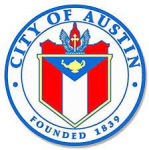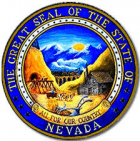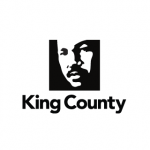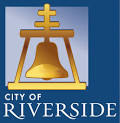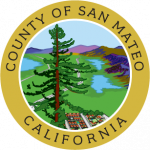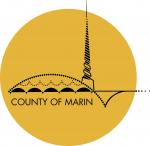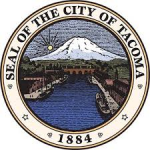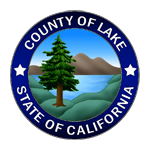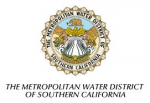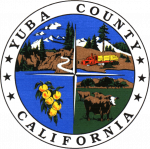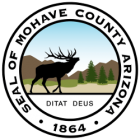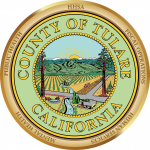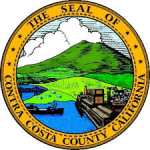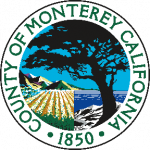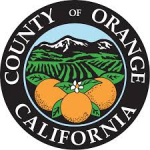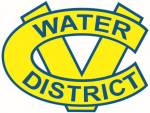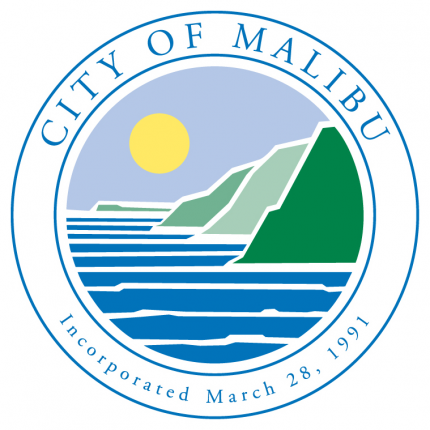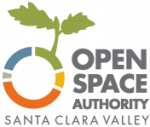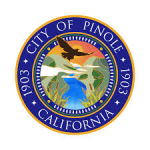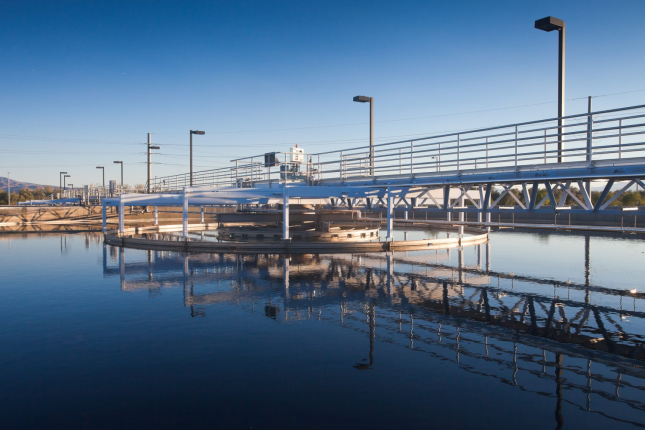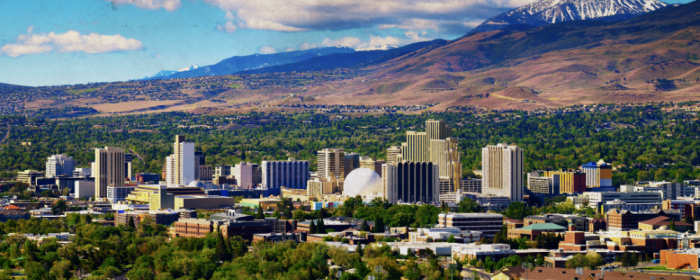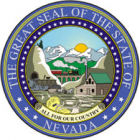Consider Environment Government Jobs to Save the Planet: A 10-Step Guide

- ⇀ 1. Understanding Environmental Government Jobs
- ⇀ 2. Assessing Your Skills and Interests
- ⇀ 3. Researching Available Positions
- ⇀ 4. Educational Requirements
- ⇀ 5. Gaining Relevant Experience
- ⇀ 6. Networking in the Environmental Sector
- ⇀ 7. Navigating the Government Hiring Process
- ⇀ 8. Starting Your Environmental Career
- ⇀ 9. Advancing in Your Role
- ⇀ 10. Making a Lasting Impact
- ⇀ Conclusion
1. Understanding Environmental Government Jobs
Did you know that in certain government agencies, federal employees are on the front lines of environmental protection, offering careers that can truly make a difference? But it doesn't stop at the national level.
Environmental government jobs encompass a wide range of positions dedicated to protecting our planet's resources, preserving ecosystems, and promoting sustainable practices. For example, you could soon be an environmental protection specialist or a biological science technician with the right background and skills. Or you could be the next pioneer in fish biology or wildlife biology.
From general natural resources management to soil conservation and beyond, duties are spread across various federal, state, and local agencies, each with its own focus and responsibilities. Check out the following key agencies and their missions:
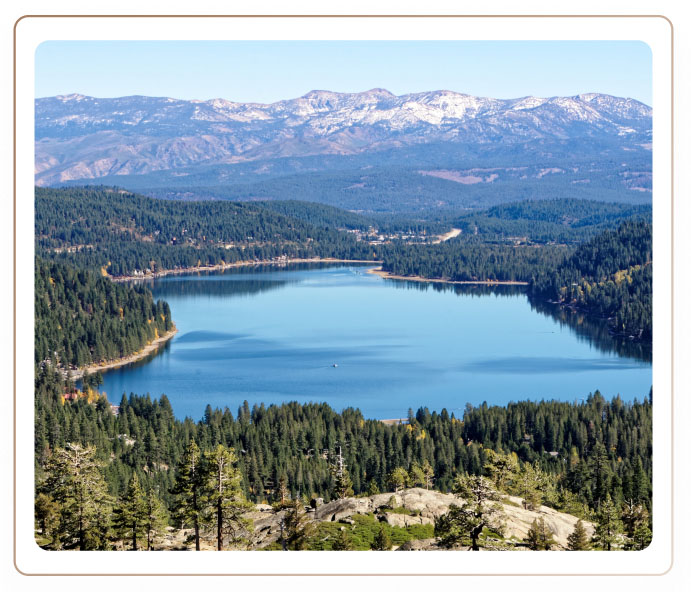
- Primary focus: Safeguarding human health and the environment
- Roles include: Environmental scientist, attorney-advisor, enforcement officer
- Primary focus: Managing and conserving America's natural resources and cultural heritage
- Roles include: Park ranger, wildlife biologist, geologist
- Primary focus: Understanding and predicting changes in climate, weather, oceans, and coasts
- Roles include: Meteorologist, marine biologist, aerospace engineer
- Primary focus: Advancing clean energy solutions and environmental sustainability
- Roles include: Nuclear materials courier, civil engineer, fish biologist
- Primary focus: Managing and protecting national forests and grasslands
- Roles include: Forestry technician, archeologist, airplane pilot
You'll find roles similar to these in the government agencies featured in our job listings. They generally fall under the following categories:
- Scientific: Conduct research, analyze data, and provide expert advice on environmental issues.
- Policy and Planning: Develop and implement environmental regulations and conservation strategies.
- Enforcement: Ensure compliance with environmental laws and regulations.
- Education and Outreach: Raise public awareness about environmental issues and promote sustainable practices.
- Administrative: Support the operational aspects of environmental programs and initiatives.
These roles offer the unique opportunity to combine your skills and interests with the power of government resources to make a lasting impact on our environment.
2. Assessing Your Skills and Interests

Before diving into the job search, it's crucial to take stock of your skills, interests, and values. This self-assessment will help you target the right environmental government jobs and increase your chances of finding a fulfilling career.
Key Areas to Evaluate:
Your Passion:- What environmental issues are you most passionate about?
- For example, does climate change, wildlife conservation, renewable energy, or water quality interest you?
- Understanding your core interests will help you focus your job search.
- Assess your proficiency in areas such as:
- Scientific research and data analysis
- Geographic Information Systems (GIS)
- Environmental modeling
- Policy analysis and writing
- Identify areas where you excel and those you might need to improve.
- Environmental government jobs often require:
- Strong communication (both written and verbal)
- Teamwork and collaboration
- Problem-solving and critical thinking
- Adaptability and flexibility
- Reflect on your experiences that demonstrate these skills.
- Review your educational background:
- How does it align with environmental fields?
- Are there areas where additional courses or certifications could be beneficial?
- Consider whether you prefer:
- Fieldwork or office-based roles
- Research-heavy or action-oriented positions
- Working independently or as part of a team
- Fast-paced environments or methodical, detail-oriented work
Self-Assessment Exercises:
Skills Inventory:- List your top 10 skills, both technical and soft.
- For each skill, provide an example of how you've used it in an environmental context.
- Write down 3-5 environmental issues that you're most passionate about.
- Research government agencies or departments that work on these issues.
- Identify your core values (e.g., sustainability, conservation, public service).
- Consider how these values align with potential environmental government roles.
- Conduct a personal SWOT analysis (Strengths, Weaknesses, Opportunities, Threats) in the context of environmental careers.
- Reach out to professionals in environmental government jobs that interest you.
- Ask about their day-to-day work, required skills, and career paths.
Matching Skills to Roles:
Once you've assessed your skills and interests, consider how they align with different types of environmental government jobs:
- Strong analytical skills → Environmental Scientist, Data Analyst
- Excellent writing abilities → Policy Analyst, Grant Writer
- Leadership experience → Program Manager, Department Director
- Passion for education → Environmental Education Specialist, Outreach Coordinator
- Field research skills → Wildlife Biologist, Hydrologist
Remember, assessing your skills and interests is an ongoing process. As you gain more experience and knowledge in the environmental field, continue to reflect on your strengths and areas for growth. This self-awareness will not only help you find the right job but also guide your long-term career development in environmental government roles.
3. Researching Available Positions
Researching available positions is a crucial step in your journey towards an environmental government job. This process will help you understand the range of opportunities available and identify roles that align with your skills and interests.
When researching positions, pay close attention to:
- Federal jobs use a classification system (e.g., 0401 for Natural Resources Management)
- Grade levels indicate seniority and pay scale
- Educational requirements
- Experience needed
- Specific skills or certifications
- Day-to-day tasks
- Project involvement
- Reporting structure
- Pay range
- Health insurance options
- Retirement plans
- Deadline
- Required documents
- Special instructions
Check out these strategies for effective research:
- Many agencies post job opportunities and career insights on platforms like LinkedIn and Twitter.
- Look for government and environmental career fairs in your area.
- Reach out to professionals in roles you're interested in to learn more about their work.
- Research special hiring programs for students and recent graduates.
By thoroughly researching available positions, you'll gain a comprehensive understanding of the environmental government job landscape. This knowledge will help you target your applications effectively and find roles where you can make the most significant impact on our planet's health and sustainability.
4. Educational Requirements

Understanding the educational requirements for environmental government jobs is crucial for planning your career path. While requirements can vary depending on the specific role and agency, there are general guidelines that can help you prepare.
Typical Degree Requirements
Bachelor's Degree:Most entry-level positions require at least a bachelor's degree.
Common majors include:
- Environmental Science
- Biology
- Chemistry
- Geology
- Natural Resource Management
- Environmental Engineering
- Public Policy with an environmental focus
Often preferred or required for advanced positions
Beneficial for specialization and career advancement
Relevant programs include:
- Master of Environmental Science
- Master of Public Administration with environmental focus
- Master of Environmental Management
- Day-to-day tasks
- Project involvement
- Reporting structure
- Typically required for high-level research positions
- Necessary for some senior scientist roles
- Can lead to leadership positions in policy development
Did you know that some agencies offer student loan repayment programs? Your dream education might be more attainable than you think.
Relevant Fields of Study
Natural Sciences:- Biology
- Ecology
- Chemistry
- Physics
- Geology
- Environmental Policy
- Public Administration
- Environmental Economics
- Urban Planning
- Environmental Engineering
- Civil Engineering
- Chemical Engineering
- Sustainability Studies
- Climate Science
- Conservation Biology
Additional Qualifications
Certifications:- LEED (Leadership in Energy and Environmental Design)
- Certified Environmental Professional (CEP)
- Professional Wetland Scientist (PWS)
- Geographic Information Systems
- Data analysis software
- Environmental modeling tools
Your educational journey is the first step in your mission to protect our planet. Are you ready to take that step?
5. Gaining Relevant Experience

While education provides a crucial foundation, gaining hands-on experience is equally important for landing environmental government jobs. Employers value candidates who can demonstrate practical skills and a genuine commitment to environmental causes.
Volunteer Opportunities
Citizen Science Projects:- Participate in local wildlife surveys or water quality monitoring programs.
- Join habitat restoration projects or invasive species removal events.
- Volunteer at nature centers or lead eco-tours.
- Get involved in local sustainability projects or climate action groups.
Part-Time and Seasonal Jobs
Park Ranger Assistant:- Work at national or state parks during peak seasons.
- Lead programs at nature centers or outdoor schools.
- Support university or government research projects.
- Help implement green initiatives in local businesses or schools.
By understanding and meeting the educational requirements for environmental government jobs, you're equipping yourself with the knowledge and skills needed to tackle some of the most pressing environmental challenges of our time.
6. Networking in the Environmental Sector

Networking is a crucial skill in any career, but it's particularly valuable in the environmental sector. Building professional relationships can lead to job opportunities, collaborations, and insights that can significantly boost your career in environmental government jobs. Consider the following network strategies:
- Environmental Protection Agency (EPA) Community Involvement Conference
- National Environmental Health Association (NEHA) Annual Educational Conference
- Local and regional environmental symposiums
- National Association of Environmental Professionals (NAEP)
- Society of Environmental Toxicology and Chemistry (SETAC)
- American Academy of Environmental Engineers and Scientists (AAEES)
- LinkedIn: Connect with professionals and join environmental groups.
- Twitter: Follow environmental agencies, leaders, and hashtags.
- ResearchGate: For academic and research-focused networking
- Environmental forums on Reddit or Quora
- Webinars hosted by government agencies or environmental organizations
Every connection is a potential gateway to your dream job in environmental protection. Who will you reach out to first?
Building and Maintaining Relationships
Be Genuine:- Show sincere interest in others' work and experiences.
- Offer help or resources when you can.
- Send thank-you notes after meetings or interviews.
- Share relevant articles or opportunities with your contacts.
- Regularly update your network on your career progress.
- Congratulate contacts on their achievements.
- Mentor students or early-career professionals.
- Share job postings or opportunities with your network.
For additional guidance, check out the following dos and don'ts:
- Research before attending events or reaching out to professionals.
- Prepare an engaging "elevator pitch" about your background and goals.
- Listen actively and ask thoughtful questions.
- Keep your online profiles professional and up to date.
- Overwhelm new contacts with immediate requests for jobs.
- Neglect to follow up after making a connection.
- Forget to reciprocate when others help you.
- Limit yourself to only digital networking; try to meet in person when possible.
Remember, every environmental leader was once in your shoes. Your next conversation could be with a future colleague or mentor. Are you ready to expand your environmental network?
7. Navigating the Government Hiring Process

Understanding the intricacies of the government hiring process is crucial for landing your dream job in environmental protection. While it may seem complex at first, with the right knowledge and preparation, you can effectively navigate this system. Look over the following process to familiarize yourself with it before applying.
- Use filters on our website to find relevant positions.
- Apply to multiple jobs to increase your chances.
- Human resources reviews applications for basic qualifications.
- Automated systems may screen for keywords.
- Hiring managers review qualified applications.
- May include rating your responses to job-specific questions
- Could be phone, video, or in-person
- May involve multiple rounds or panel interviews
- Level of check depends on the position
- Be prepared to provide detailed personal information.
- Initial offer may be tentative, pending final checks.
- Limited room for salary negotiation in many government positions
Each step in this process is an opportunity to showcase your passion for environmental protection. How will you make your application stand out?
Tips for Success
Tailor Your Application:- Use keywords from the job announcement in your resume and responses.
- Clearly demonstrate how you meet each qualification.
- Double-check all information for accuracy.
- Provide detailed examples of your experiences and skills.
- Federal jobs are classified on a GS scale.
- Know which GS level you qualify for based on education and experience.
- Some positions require additional tests or evaluations.
- Practice with sample questions if available.
- Government hiring can take several months.
- Don't be discouraged by long waiting periods.
Stay persistent, detail-oriented, and passionate, and you'll be well on your way to joining the ranks of environmental stewards in government service.
8. Starting Your Environmental Career
Starting your environmental career in a government role is an exciting and pivotal moment. It's your chance to translate your passion and education into real-world impact.
First Days on the Job
Orientation and Onboarding:- Pay close attention to agency-specific procedures and policies.
- Familiarize yourself with your department's structure and key personnel.
- Complete any required training promptly.
- Organize your physical and digital workspace for efficiency.
- Ensure you have all necessary tools and access to required systems.
- Introduce yourself to colleagues and supervisors.
- Start building relationships with your new coworkers.
- Review your job description and responsibilities in detail.
- Clarify any uncertainties with your supervisor.
Your first impression can set the tone for your entire career. How will you demonstrate your enthusiasm and commitment from day one?
Navigating Government Culture
Understand the Hierarchy:- Learn the chain of command and proper communication channels.
- Respect established protocols while looking for opportunities to innovate.
- Government environmental work often involves multiple departments and agencies.
- Be open to cross-functional projects and teamwork.
- Government work can move slower than the private sector due to regulations and procedures.
- Stay patient and focused on long-term goals.
- Familiarize yourself with government ethics rules and regulations.
- Uphold the highest standards of integrity in your work.
By approaching your new role with enthusiasm, professionalism, and a commitment to growth, you're setting the stage for a fulfilling career in environmental government service. Your work has the potential to shape policies, protect ecosystems, and create a more sustainable future for generations to come.
9. Advancing in Your Role

Your environmental government job is not just a career—it's a pathway to creating lasting change. How will you grow your impact and influence in the years to come?
Advancing in your environmental government role requires a combination of dedication, strategic thinking, and continuous improvement. Here's how you can progress in your career and amplify your contribution to environmental protection:
Excelling in Your Current Position
Master Your Core Responsibilities:- Become the go-to expert in your specific area.
- Consistently deliver high-quality work and meet deadlines.
- Volunteer for challenging projects or cross-departmental collaborations.
- Propose innovative solutions to ongoing environmental challenges.
- Mentor newer employees or interns.
- Lead small teams or project groups when opportunities arise.
- Be reliable, ethical, and professional in all interactions.
- Foster positive relationships across your agency and with external partners.
Navigating the Government Career Ladder
Understand the General Schedule (GS) System:- Familiarize yourself with the requirements for each GS level.
- Set clear goals for advancement through the ranks.
- Schedule performance discussions with your supervisor.
- Ask for specific guidance on what's needed to reach the next level.
- Keep a detailed record of your accomplishments, projects, and impact.
- Use this information in performance reviews and promotion applications.
- Sometimes, moving to a different department or agency can open new advancement opportunities.
- Gain diverse experience to become a well-rounded environmental professional.
In government service, advancement often means increased responsibility and influence. How will you prepare yourself for these challenges and overcome career plateaus?
Seek New Challenges:- If you feel stagnant, look for ways to expand your role or take on new responsibilities.
- Consider temporary assignments or details to other departments.
- If interested in leadership, start developing management skills.
- Look for opportunities to lead teams or manage projects.
- Remember the importance of your work in protecting the environment.
- Set personal goals that align with your values and the agency's mission.
Advancing in your environmental government role is about increasing your capacity to make a difference. By consistently improving your skills, expanding your knowledge, and taking on greater responsibilities, you position yourself to play a larger role in shaping environmental policies and practices.
10. Making a Lasting Impact
Making a lasting impact in your environmental government role goes beyond day-to-day tasks. It's about creating positive change that endures and influences environmental policies and practices for years to come. Here's how you can maximize your impact and leave a meaningful legacy:
Driving Innovation
Embrace New Technologies:- Stay informed about emerging environmental technologies.
- Advocate for the adoption of innovative solutions in your agency.
- Develop proposals for new programs or policies that address future environmental challenges.
- Think long-term and consider potential impacts decades ahead.
- Question outdated practices and suggest more efficient, sustainable alternatives.
- Encourage a culture of continuous improvement within your agency.
Fostering Collaboration
Build Cross-Agency Partnerships:- Initiate projects that involve multiple government departments.
- Break down silos to create more comprehensive environmental solutions.
- Develop public-private partnerships to leverage resources and expertise.
- Collaborate with industries to promote sustainable practices.
- Participate in global environmental initiatives.
- Share best practices and learn from international counterparts.
- Create programs that engage citizens in environmental protection efforts.
- Foster a sense of shared responsibility for environmental stewardship.
Influencing Policy and Decision-Making
Contribute to Policy Development:- Provide expert input on environmental regulations and guidelines.
- Author or co-author policy briefs and white papers.
- Ensure that environmental policies are grounded in solid scientific evidence.
- Communicate complex scientific concepts clearly to policymakers.
- Contribute to your agency's long-term environmental strategies.
- Help set ambitious yet achievable goals for environmental protection.
Influencing Policy and Decision-Making
Contribute to Policy Development:- Provide expert input on environmental regulations and guidelines.
- Author or co-author policy briefs and white papers.
- Ensure that environmental policies are grounded in solid scientific evidence.
- Communicate complex scientific concepts clearly to policymakers.
- Contribute to your agency's long-term environmental strategies.
- Help set ambitious yet achievable goals for environmental protection.
Mentoring and Educating
Develop the Next Generation:- Mentor young professionals and interns in your agency.
- Share your knowledge and experiences to inspire future environmental leaders.
- Organize skill-building sessions for colleagues.
- Lead workshops on emerging environmental topics.
- Participate in outreach programs to educate the public about environmental issues.
- Write articles or give presentations to raise awareness about your work.
Your work in environmental government service has the potential to shape policies that could impact legislative affairs, influence behaviors, and protect vital ecosystems for generations to come. Embrace this responsibility and opportunity to be a true steward of our planet's future.
Conclusion

The challenges our planet faces are significant, but so is the potential for dedicated individuals to make a difference. By joining the ranks of environmental professionals in government service, you're answering a call to action. Your work will contribute to shaping policies, implementing solutions, and safeguarding our natural resources for future generations.
As you move forward, keep in mind that success in this field comes not just from individual achievements, but from collaboration, persistence, and a commitment to long-term thinking. Build relationships across agencies and sectors, stay informed about emerging environmental issues and technologies, and always look for opportunities to innovate and improve existing practices.
Your journey in maintaining environmental quality may have its challenges, but the rewards are immeasurable. You'll have the chance to see your efforts translate into cleaner air, purer water, protected wildlife, and more sustainable communities. Your work will be a crucial part of the global effort to address climate change, preserve biodiversity, and create a more sustainable future for all.


